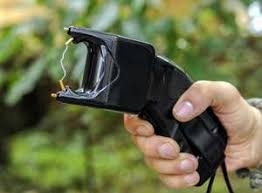New York has one of the most draconian and burdensome knife laws in the Country and as we have reported over almost a decade in this blog many innocent people have been caught up in New York’s knife law maze. Last week, however, after several prior attempts at changing the law, Governor Cuomo finally signed a law that will change New York’s knife laws.![]()
The Problem
As we wrote as early as 2010, the Manhattan District Attorney’s Office made a deal with several retailers in Manhattan, including Home Depot and other major retailers for them to pay a financial penalty and stop selling gravity knives in New York. The problem was that these knives were being sold by companies who paid only a relatively small financial penalty while citizens, many african-american and latino youths were being arrested and given criminal records for buying these knives which were readily available. In 2016, we wrote another blog about this problem after the Village Voice wrote an extensive article about it. According to the Village Voice article, there had been as many as 60,000 arrests for gravity knives in the preceding 10 years which put gravity knives in the top 10 most prosecuted cases. Village Voice analysis also seemed to indicate that a disproportionate number of African-Americans and Latinos were prosecuted for gravity knives.
 New York Criminal Attorney Blog
New York Criminal Attorney Blog


